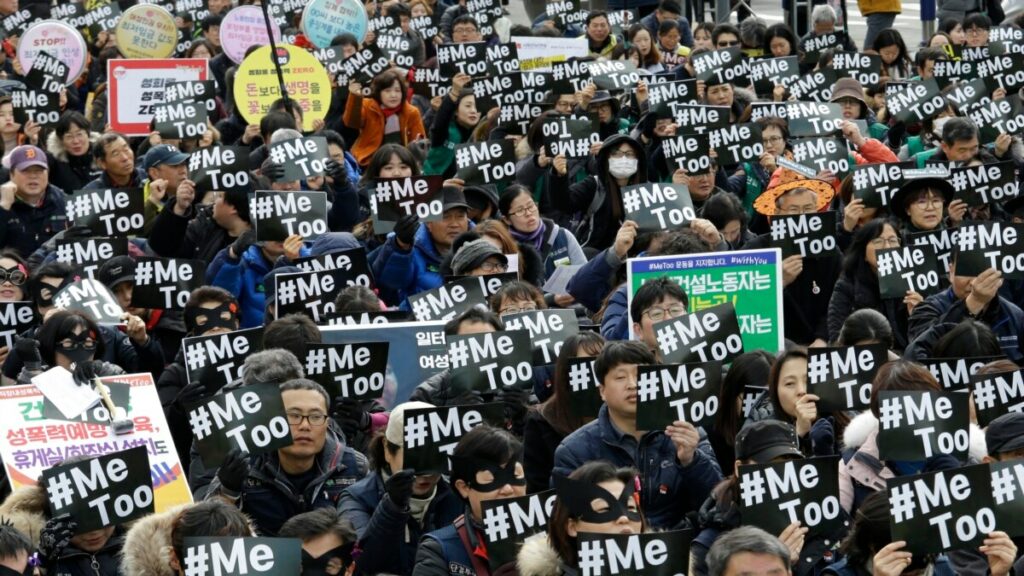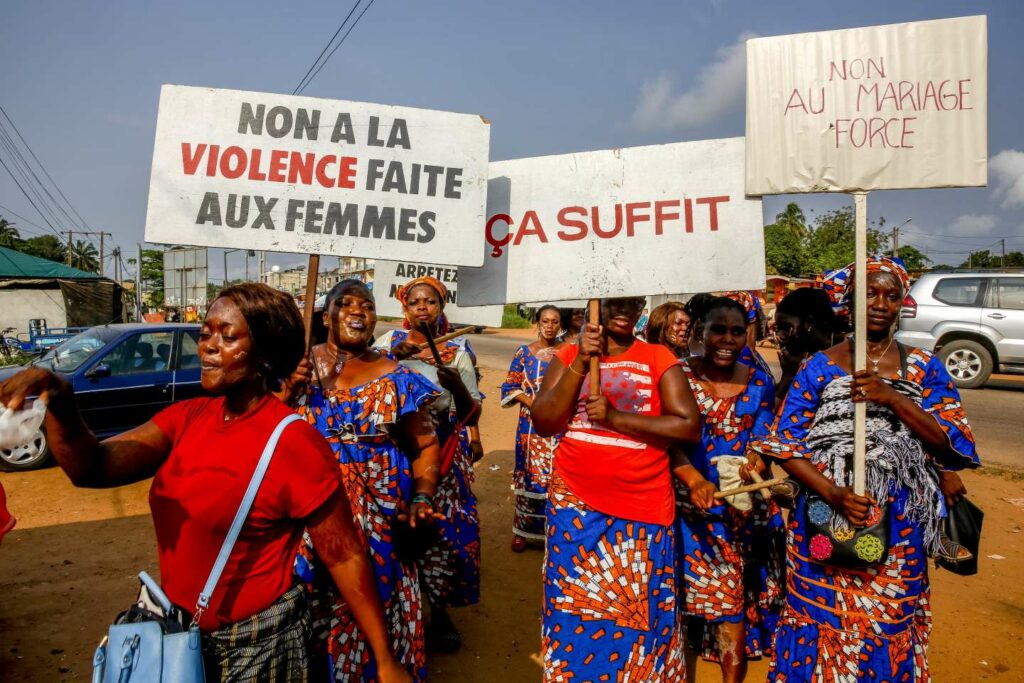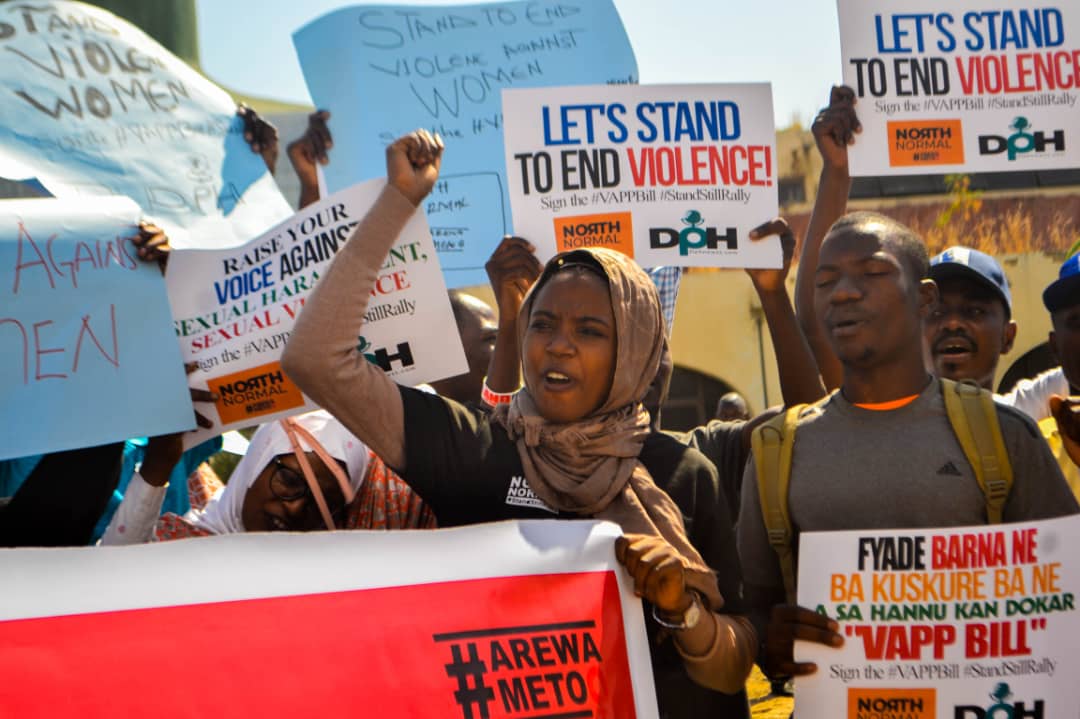We still live in a world where sexual harassment is an everyday reality for women and girls.
The #MeToo movement was, it would appear, nothing but a fleeting moment.
Indeed, some six years after thousands of women started using the viral hashtag to publicize their experiences of sexual harassment and three years after powerful Hollywood producer Harvey Weinstein was jailed for rape and sexual assault, sex-based violence is still endemic not just in Hollywood, but also in offices, schools and on the street.
In a 2021 United Nations Women survey of 1,000 women in the United Kingdom, for example, 71 percent of all respondents, and a whopping 97 percent of those aged 18-24, said they had experienced some form of sexual harassment or abuse in a public place. In the same survey, 96 percent of the respondents said they did not report the harassment they faced because they thought it would not make any difference.
Just last month, an inquiry by the UK Parliament’s Women and Equality Committee found that sexual harassment and sexual violence against women and girls remain endemic in educational settings and recommended that on top of investigations into “peer-on-peer abuse in schools” there is a need for investigating and addressing the abuse experienced by female staff at the hands of pupils, parents and their colleagues.
It seems, after years of #MeToo campaigns and many decades of feminist action, women and girls are still not able to work, walk on the street or go to school without having to deal with wolf whistles, sexually charged “jokes”, unwanted touching, or worse. What gives?

Sexual harassment is at once very simple and very complicated. It is defined as behaviour of a sexual nature which is unwanted, unwelcome and unreciprocated – behaviour that might threaten job security, or create a stressful or intimidating environment for those being subjected to it. It includes a wide range of actions, from catcalling and staring to public access to pornography and rape.
On the surface, it appears identifying and addressing sexual harassment would be fairly easy – in reality, it is anything but. Since feminists made putting an end to all forms of sexual harassment a key campaign objective in the 1980s, many have been questioning what should be considered sexual harassment and how society should react to it. People have been accusing us “humourless” feminists of trying to criminalise “innocent banter”, “well-meaning jokes” or even “compliments”. Many have also been pushing harmful stereotypes about who could or could not face this type of harassment – “joking” that some women are simply too old or too ugly to have been sexually harassed. It is also not at all surprising to hear people claim that a certain man could not be a harasser because he is rich, good looking or overall a good “catch” for the woman accusing him of making unwanted advances.
Black and other ethnic minority women, and lesbians, could also face sexual harassment related to their identities – and face additional obstacles in their attempts of bringing their harassers to justice. Just like it is the case with rape and sexual assault, when they try and stand up to their harassers they often find themselves struggling to navigate a justice system that is not only patriarchal, but also inherently racist and homophobic. This makes it difficult for them to report the crime and triggers feelings of guilt, self-blame, and embarrassment.
When I was 17 years old, I was relentlessly sexually harassed at a pub I worked in by the landlord and his son. One day they even chased me around a bedroom and attempted to rape me. They used the fact that I was a lesbian to justify their abominable actions, claiming I must be sexually frustrated and desperate for sex with a man because women “cannot do it properly”.
Back in the late 1970s and early 80s, sexual harassment was something to be joked about – something accepted as a normal part of public life. Most men, and women, were not even aware of the term. Comedian Benny Hill, whose trademark act was to chase half-naked women around a room and threaten to grab their breasts and other intimate parts, was a household name in Britain. His prime-time show was watched by millions. In 1985, one of the actors working in his show, Stefanie Martin, accused him of a horrific sexual assault, but he managed to brush off the accusation.
That same year, feminists tired of the rape culture dominating Britain found Women Against Sexual Harassment (WASH), the first NGO in the UK to offer advice and counselling to women who had endured such harassment. It also became an important lobbying and campaigning group, raising awareness about an issue that was more often than not seen as a joke.

Thanks to the efforts of WASH and the wider feminist movement, attitudes towards sexual harassment slowly began to change in Britain and beyond. In 1989, Hill was finally sacked by TV executives who grew wary of his lewd sense of humour and attitudes towards women.
Finally, sexual harassment was not simply a joke.
Today, we came even further. While there are some still longing for the days when the Benny Hill Show was considered the best example of British comedy, it is impossible to imagine any TV executive in the country commissioning a show openly and proudly making a joke out of sexual harassment and abuse of women.
And yet, as UN surveys, parliament research papers, and testimonies of women repeatedly demonstrate, sexual harassment is still all around us. It may no longer be celebrated on our TV screens like it was in the 1970s, but it is still alive and well. Decades of feminist action, including the #MeToo movement, pushed it into the shadows and taught men to hide some of their predatory behaviour, but it in no way put an end to this everyday threat making the lives of countless women and girls a misery.
Men are now targeting women in more insidious ways, away from the public eye. Encouraged by a culture heavily influenced by pornography and emboldened by the insistently low conviction rate for rape and sexual abuse, predatory men are still harassing women, on the street, at work, at school or online, but making sure that they act covertly enough to preserve their respectability. Many women, on the other hand, appear to have become more accepting and conned into believing that objectification and even commodification of their bodies are actually empowering – thus came to accept the age-old story that blatant acts of sexual harassment are actually jokes, banter or even appreciation of their beauty.
In the end, with #MeToo we won yet another battle, but the feminist war against sexual harassment is far from over.
The views expressed in this article are the author’s own and do not necessarily reflect Live Africa News editorial stance.
Julie Bindel
Journalist, author and feminist campaigner
Julie Bindel is a journalist, author and feminist campaigner. Her book Feminism for Women: The Real Route to Liberation, (Constable, Robinson) was published in May 2021






